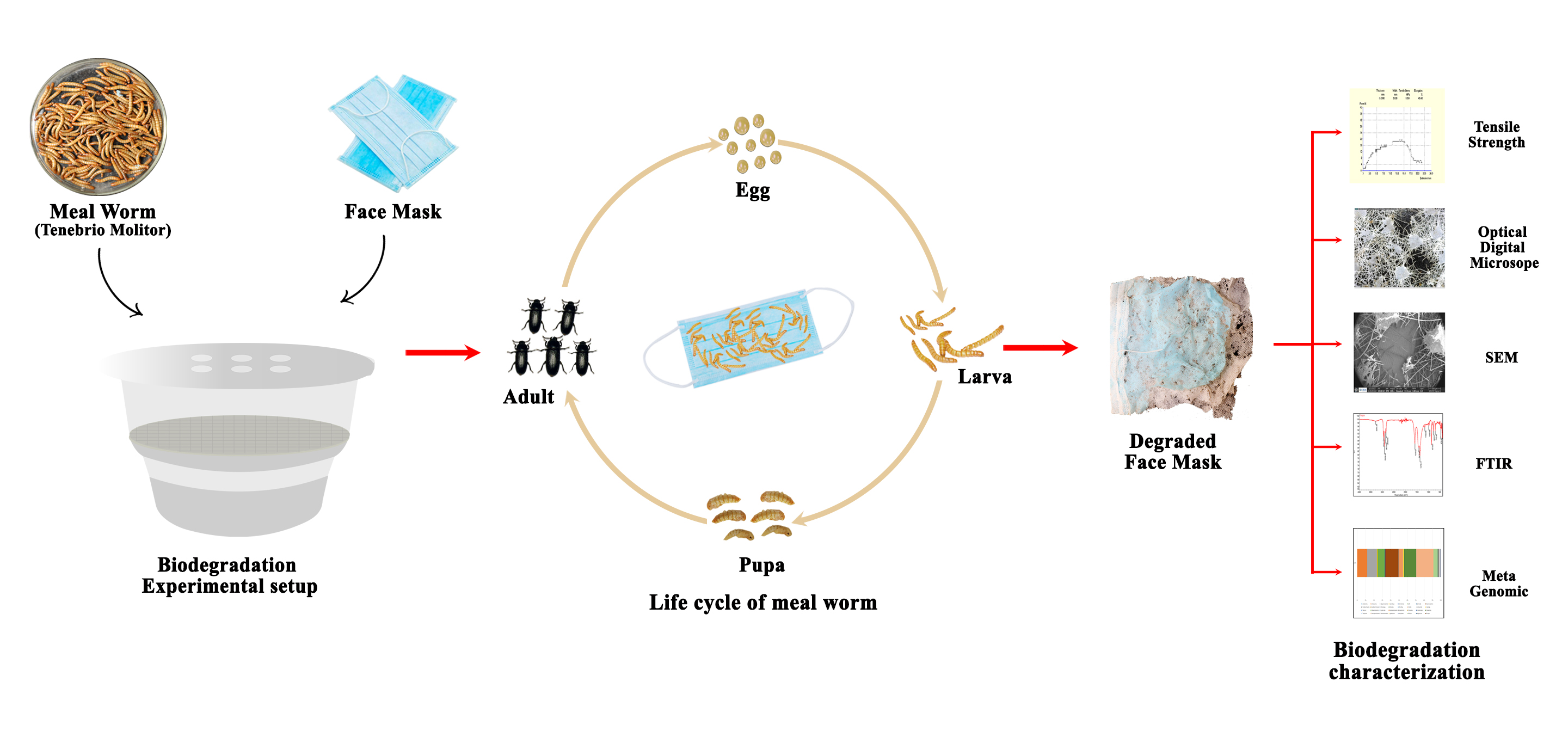
In recent years, the surgical face mask is mandatory for human health safeguards due to the worldwide pandemic disease COVID-19. The improper disposal of medical face masks polluted the environment. Tenebrio molitor (mealworm) larvae were shown to have the capacity to chew and consume polypropylene medical face masks. Mealworm survival rates were determined for 30 days under three different feeding conditions such as (i) medical mask as a sole diet, (ii) fed bran as a sole diet, and (iii) mealworms are starved, the survival rates results are 89.25 ± 4.5%, 95.35 ± 1.5% and 58.2 ± 3.5% respectively. While the biodegradation of the medical face mask by mealworms, it consumed 47.5% of the total mask and lost tensile strength by about 80% which showed that biodegradation of the medical mask. The biodegradation of the mask was confirmed by instrumentation analysis, which included digital microscopy, Fourier transform infrared spectroscopy, and scanning electron microscope microscopy. The results revealed that the qualitative mask had lost its original characteristics, such as damaged pore size, many scratches, and functional groups that had changed, and that mealworms could degrade the medical face masks. In addition, mealworm gut metagenomic analysis was also performed for the microbial diversity, ten genera were found as the most abundant following Delftia, Pseudomonas, Flavobacterium, Chryseobacterium, Spiroplasma, Stenotrophomonas, Bacillus, Rhodococcus, Brevundimo and Acinetobacter.
Total file downloads: 27